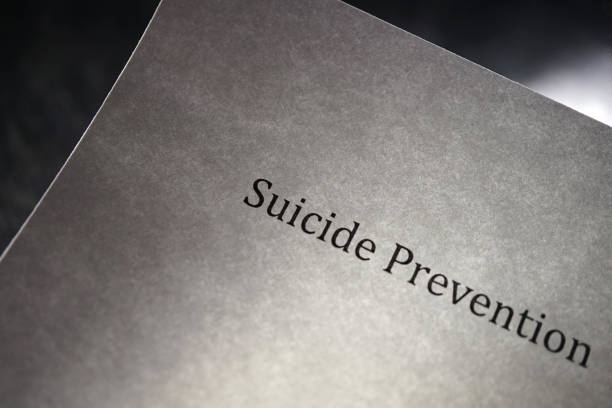Content warning: The following blog on offences relating to suicide contains discussions of sensitive topics under the Crimes Act 1900 (NSW). We advise reader discretion. If you or someone you know is currently struggling with mental health issues, please consider seeking appropriate support. This content aims to provide information and awareness, but it may be triggering for some individuals. If you feel distressed, we recommend you to reach out to a mental health professional, counsellor, or a trusted person in your life.
The Crimes Act 1900 (NSW) outlines certain offences relating to suicide. Suicide refers to the act of intentionally taking one’s own life. It is a tragic and complex phenomenon often stemming from a combination of psychological, social, and environmental factors.
People may consider suicide due to overwhelming emotional pain, mental health disorders, feelings of hopelessness, isolation, or significant life challenges. Preventing suicide involves early intervention, improving mental health support systems, reducing stigma, and promoting open conversations about emotional well-being.
It’s a serious public health concern that requires compassion, understanding, and effective strategies to provide individuals with the help they need and deserve. In this article we will be focusing on the legal aspects and we will explore if there are any offences relating to suicide in NSW, Australia.
Offences Relating to Suicide in NSW
Section 31A of the Crimes Act 1900 states that the rule of law that made it a crime for a person to commit, or to attempt to commit, suicide is abrogated. Moreover, Section 31B includes points in relation to survivor of suicide pact.
A suicide pact, according to Section 31B refers to a common agreement between 2 or more persons having for its object the death of all of them. This is whether or not each is to take his or her own life.
Section 31B states that nothing done by a person who enters into such a pact shall be treated as being done by the person in pursuance of the pact unless it is done while the person has the settled intention of dying in pursuance of the pact.
Section 31B states that:
- The survivor of a suicide pact shall not be guilty of murder or manslaughter but may be guilty of an offence under section 31C.
Subsection (3) of Section 31B states that the onus of proving the existence of such a pact shall lie with the accused person on the balance of probabilities.
Section 31C: Offences Relating to Suicide and Aiding etc Suicide
This is an important Section to consider when reading up about offences relating to suicide. Subsection (1) states that a person who aids or abets the suicide or attempted suicide of another person shall be liable to imprisonment for 10 years.
Moreover, where:
- a person incites or counsels another person to commit suicide, and
- other person commits, or attempts to commit, suicide as a consequence of that incitement or counsel,
the first-mentioned person shall be liable to imprisonment for 5 years.

What About Offences Relating to Suicide in Other Australian States?
We have explored certain offences relating to suicide in NSW as per its Crimes Act. Each Australian state has its own legislation for criminal law. Let’s explore important points as mentioned under laws from other states.
For example, in Victoria, provisions pertaining to suicide-related offences can be found within section 6B of the Crimes Act 1958. An individual can be charged with an offence if they:
- Incite another individual to engage in suicide, resulting in the other person’s actual suicide or an attempted suicide.
- Assist or encourage another person to commit suicide or attempt to do so.
Conviction for these offences can result in a maximum penalty of up to 5 years of imprisonment. Moreover, in cases where a person survives a suicide pact but is deemed responsible for the death of the other party involved, the charge will be for manslaughter rather than murder, as per the laws of Victoria.
Moreover, in Australian Capital Territory, as outlined in section 17 of the Crimes Act 1900, engaging in the following actions is considered an offence:
- Assisting or encouraging another person to commit or try to commit suicide.
- Instigating or advising someone to commit suicide, resulting in their actual suicide attempt or completion.
Convictions for these actions can lead to a maximum imprisonment term of up to 10 years. Additionally, section 18 of the Crimes Act 1900 in the ACT specifies that it is legally permissible to utilise reasonable force to prevent another person from taking their own life.
Seeking Advice
Seeking help from professionals for suicidal thoughts or tendencies is very important. Firstly, mental health professionals, such as therapists, psychologists, and psychiatrists, are trained to handle such situations. They possess the expertise to assess the severity of the situation, identify underlying factors contributing to suicidal thoughts, and develop tailored interventions.
Their knowledge can help in addressing the root causes and providing effective strategies for managing and overcoming these thoughts. Moreover, professionals offer a safe and confidential environment for individuals to express their feelings without judgment. This facilitates open communication, allowing individuals to discuss their thoughts, emotions, and fears without the fear of being stigmatised by the community.
Additionally, mental health professionals can prescribe appropriate medications if necessary. If these thoughts are arising due to chemical imbalances in the brain, medication can play a crucial role in stabilising these imbalances. Engaging with professionals also provides a support network for individuals in crisis.
Lifeline support is an essential national organisation that people who are facing emotional distress can reach out to. If you are facing any legal issues, our lawyers can help you. Contact our team today.
